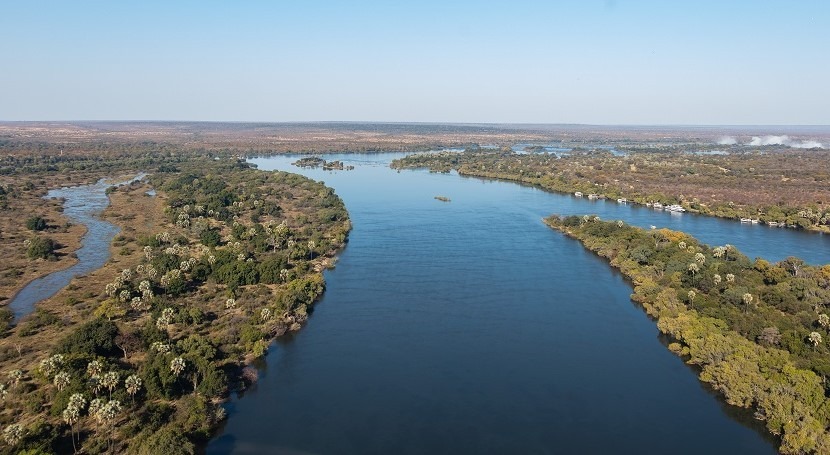The push towards privatising water systems in Africa has raised concerns about the impact on the human right to water, the overall well-being of communities and the independence of African States.
The new commodity of the 21st Century: water's economic potential
“The group has strong ambitions on the continent to increase revenue by 50%. We have just finalised our 2020-2023 strategic plan,” explained Christophe Maquet, Senior Executive Vice President, Veolia. Water promises to be to the 21st century what oil was to the 20th century: the commodity that determines a nation’s wealth. In the sight of big capital, water is an undervalued asset and an emerging market in Africa. Following several failed privatisation contracts in the water industry, mainly in Europe, Africa is now targeted as an expansion market. However, this ambition is not without its challenges and opposition.
The assertion by Akinbode Oluwafemi, Executive Director, Corporate Accountability and Public Participation Africa (CAPPA) underscores the resistance and criticism faced by water privatisation initiatives: “No matter where you are from on this continent, the threat of water privatisation is real. It is a failed development model, Africa should not be the dumping ground for such a system.”
Water privatisation drivers threaten African’s human right to water
Governments are mandated to realise the human right to water for all their citizens and there is an industry with various water market actors that exploits their inadequacies for profits to fulfil this. As Africa’s governments are pressured to adopt water privatisation their poorest and marginalised communities pay the price.
“The world is offtrack to meet SDG 6 particularly in Africa despite there being enough water for everyone. Water insufficiency is often due to mismanagement, corruption, lack of appropriate institutions, bureaucratic inertia and a shortage of investment in both human capacity and physical infrastructure", points out UN World Water Report of 2006. In this regard, Vandana Shiva asserts “the process whereby water is transformed from a public good to a tradable commodity is due to economic processes at work where private companies make large profits through high water tariffs that deny the poor their inalienable right to the substance for life.”
As Africa’s governments are pressured to adopt water privatisation their poorest and marginalised communities pay the price
Privatisation is also pushed by critics of governments’ inadequacies to efficiently operate water supplies through market-based water governance that gives water an economic value; water finance contingent on privatisation; and research and marketing voices advising governments to privatise water systems. “Sometimes, with constrained resources the private sector’s resources may be key to achieving SDG6, but its risks makes many wary on handling such engagements,” acknowledges former prime minister of Senegal Aminata Touré.
Water privatisation is a global failure, an organised rip-off
Where near-universal water access has been achieved, it has virtually always been through a public commitment. This rebuff is a blow to pro-water privatisation enthusiasts, advising governments to contract private companies to take over Africa’s under-resourced water systems. The thing about water privatisation is that the devil is in the details; investors are raking in profits while everyone else is paying the price and suffering. The global track record of water privatisation serves as a cautionary tale. The following voices of opposition provide lessons for Africa.
India Water Portal cites that water in Sydney was contaminated with high levels of giardia and cryptosporidium after Suez Lyonnaise des Eaux took over. In Britain, between 1989-1995, water and sewage bills increased by 67% while disconnection rates increased by 177%. Water rates in England increased by 450% while company profits soared by 692% and salaries of CEOs of private corporations increased by 708%. Water fees in France rose by 150% but the water quality declined. Buenos Aires, Tucuman (Argentina), Metro Manila (Philippines), Atlanta (USA) have similar negative cases.
Governments must play a key role in water finance in Africa through mobilised grants, viable commercial loans, public and development finance
“I oppose Water (Amendment) Bill 2023 to privatise Kenya's water sector. Some things should not be privatised because of the negative effect it has on public service delivery. It is debatable that privatising education and health sectors resulted to better services. Anytime you introduce commercial interests in essential services, the public always suffers”, said Edwin Sifuna, Senator for Nairobi.
Water privatisation in Africa’s context remains a new solution to an old problem. The legacies of colonialism and imperialism permeating Africa’s water systems cannot be ignored. It has been resisted mainly due to its impact on the poor.
In South Africa, private corporations are disconnecting thousands of poor people who cannot pay for water, decreasing social equality further. Despite high poverty levels in Mali and Niger water privatisation is a requirement for debt relief and further aid. In Ghana, after privatisation water charges increased by 95% still, one third of Ghana’s population is unserved. The promotion of Senegal and Gabon’s privatisation as a success stands in stark comparison to the reality of its failure given frequent water service disruption, environmental and public health hazards including a typhoid outbreak - and unmet commitments by private companies, hence contract discontinuation by the state, similar to Tanzania. Such contrast between the promotion of water privatisation as a success and the reality of its failure underscores the disconnect between rhetoric and lived experiences.
The case for democratic water governance as an alternative
“Direct experience with common private water management problems has persuaded communities and policymakers that the public sector is better placed to promote water rights through quality services to citizens”, advocates Satoko Kishimoto, Water Coordinator, Transnational Institute in Brussels. This is affirmed by the OECD who recommends that while private capital is significant in mobilising water finance in Africa, private sector cannot realistically be the main financier. Governments must play a key role through mobilised grants, viable commercial loans, public and development finance.
Therefore, Pedro Arrojo, UNOHCR Special Rapporteur on HRWS, guides that “it is necessary to develop a democratic governance of water, guaranteeing human rights, environmental sustainability, transparency and participation as keys to fight bureaucratic opacity and promote efficiency.” Cornell University proposes the re-municipalisation/renationalisation of water systems; public-public partnerships (PUPs), through intermunicipal cooperation, interlocal agreements, and bulk purchasing consortiums, can improve public services, reduce costs and retain local control.
In conclusion, the goal remains to improve safe water for all in Africa. Multinational financing institutions and private corporations can play a role in funding Africa's water sector, but their commitment to privatisation as an ideological agenda must be reassessed. African governments in collaboration with regional inter-governmental bodies, should explore viable options to invest in our water infrastructure and prioritize the human right to water. The resistance to water privatisation, the recognition of human rights, and the call for democratic governance collectively point towards a future where water is not just a commodity but a fundamental right for all in Africa.




